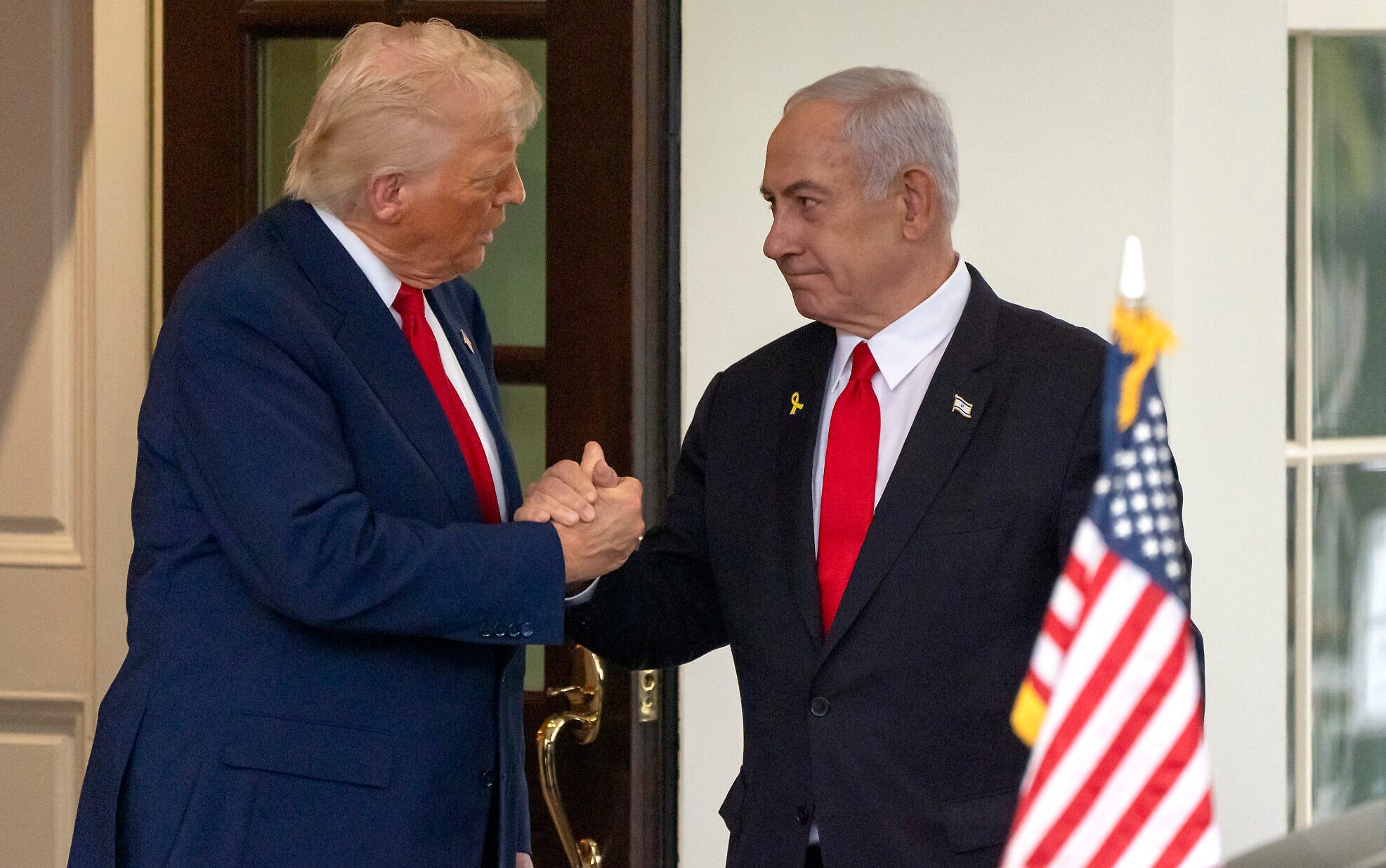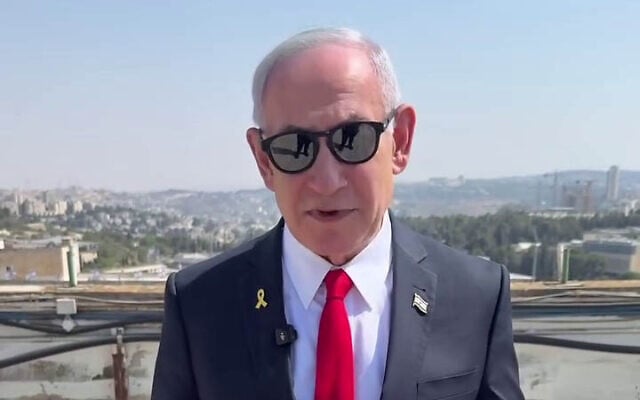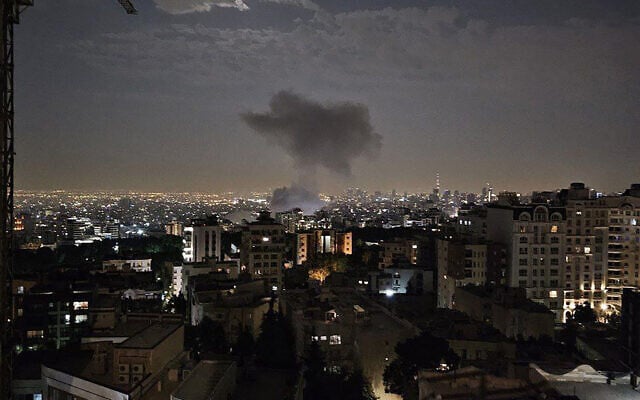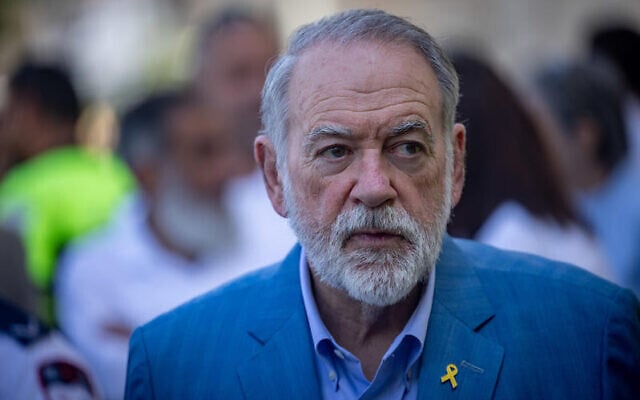



Israel and the US carried out a multi-faceted misinformation campaign in recent days to convince Iran that a strike on its nuclear facilities was not imminent, an Israeli official told The Times of Israel on Friday.
The official asserted that US President Donald Trump was an active participant in the ruse, and knew about the military operation since Prime Minister Benjamin Netanyahu decided to move forward with the strike on Monday.
Netanyahu and Trump spoke by phone for 40 minutes that same day. At the time, unnamed officials leaked to Israel’s Channel 12 that Trump had told Netanyahu in a “dramatic” conversation to remove an attack on Iran’s nuclear sites from the agenda as negotiations continue. According to the TV report, Trump stressed that there would be no discussions on a military strike until the president concluded that nuclear talks with Iran had failed.
This, the Israeli official argued on Friday, had all been untrue.
The next day, Netanyahu announced in a video statement that there had been “significant progress” in hostage talks with Hamas. Foreign Minister Gideon Sa’ar echoed the message in a joint statement alongside his Zambian counterpart.
Israeli reporters were told by officials that Thursday’s cabinet meeting would deal with hostage talks.
The problem was, foreign officials couldn’t figure out what progress Israel was speaking about, as there hadn’t been a major development in efforts to secure a deal. An Arab official familiar with the hostage negotiations, who spoke with The Times of Israel speculated at the time that Netanyahu was expressing public optimism to “spook” ultra-Orthodox lawmakers against voting Wednesday to dissolve his coalition.
But the Israeli official indicated that this too was part of the misdirection. Israel wanted Iran to think it was focused primarily on getting a hostage deal, not preparing for a strike.

At the same time, Israel had to sell Iran a believable story, and not ignore the nuclear issue. Instead, Israel wanted Tehran to think it was still debating the matter of a potential strike with the White House.
It thus announced that Strategic Affairs Minister Ron Dermer and Mossad Chief David Barnea would take off for talks with US special envoy Steve Witkoff ahead of the next round of talks between Tehran and Washington, set for Sunday, claiming the trip was meant to “clarify Israel’s position.”
The Prime Minister’s Office wouldn’t even answer a direct question from The Times of Israel as to where the purported meeting was to take place. It is now clear that the meeting was never on the schedule.

Israel clearly hoped the Iranians would believe there was no way it would attack before the Sunday talks.
On all fronts, Israel sought to put forth an air of business as usual. Netanyahu’s office put out a statement on Thursday stressing that despite some media reports to the contrary amid the rising regional tensions, he would not be canceling his weekend vacation in the north.
Netanyahu’s son Avner is scheduled to be married next week, an event that also led many to believe an imminent strike was unlikely. Preparations for the event went ahead. On Thursday, police erected iron roadblocks and barbed wire fences around a 100-meter (109-yard) perimeter around the upscale Ronit’s Farm event hall in Kibbutz Yakum, north of Tel Aviv. That ceremony is sure to be delayed now.
Trump contributed to the effort. “He played the game together with Israel,” said the Israeli official. “It was a whole coordination.”
Trump said Thursday that an Israeli strike on Iran’s nuclear sites “could very well happen” but advised against it, saying the possibility of a deal was “fairly close” if Tehran compromised on its atomic ambitions in ongoing talks with the US.
US Ambassador to Israel Mike Huckabee also said in an interview Thursday that Israel was unlikely to attack Iran without a green light from Washington.

Israel has used such methods in the past.
Before the 2008-2009 Operation Cast Lead in Gaza, the Prime Minister’s Office under then-premier Ehud Olmert said a security cabinet meeting set on a Wednesday would deal with global jihad, when in fact it was convened to prepare that operation. After the meeting, the readout devoted a full page to an effort to outlaw 35 Islamist groups, while dedicating only one line to Gaza.
The next day, Thursday, Israel said border crossings into Gaza would be opened and that Olmert would hold more meetings on Sunday to discuss tensions with Hamas. Israel opened its surprise attack on Saturday, bombing Hamas police stations and killing over 200 on the first day of the operation.
It is too early to say definitively that the misinformation campaign worked. But the opening act of the Israeli air campaign against Iran’s nuclear and ballistic missile sites has been stunningly effective, and it would seem that senior Iranian commanders eliminated in their homes were not anticipating any danger.
And, perhaps surprisingly for Israel, ministers did not leak anything related to the plans, and played their parts well. It is a discipline that has been noticeably absent from Israel’s fight against Hamas in Gaza.
